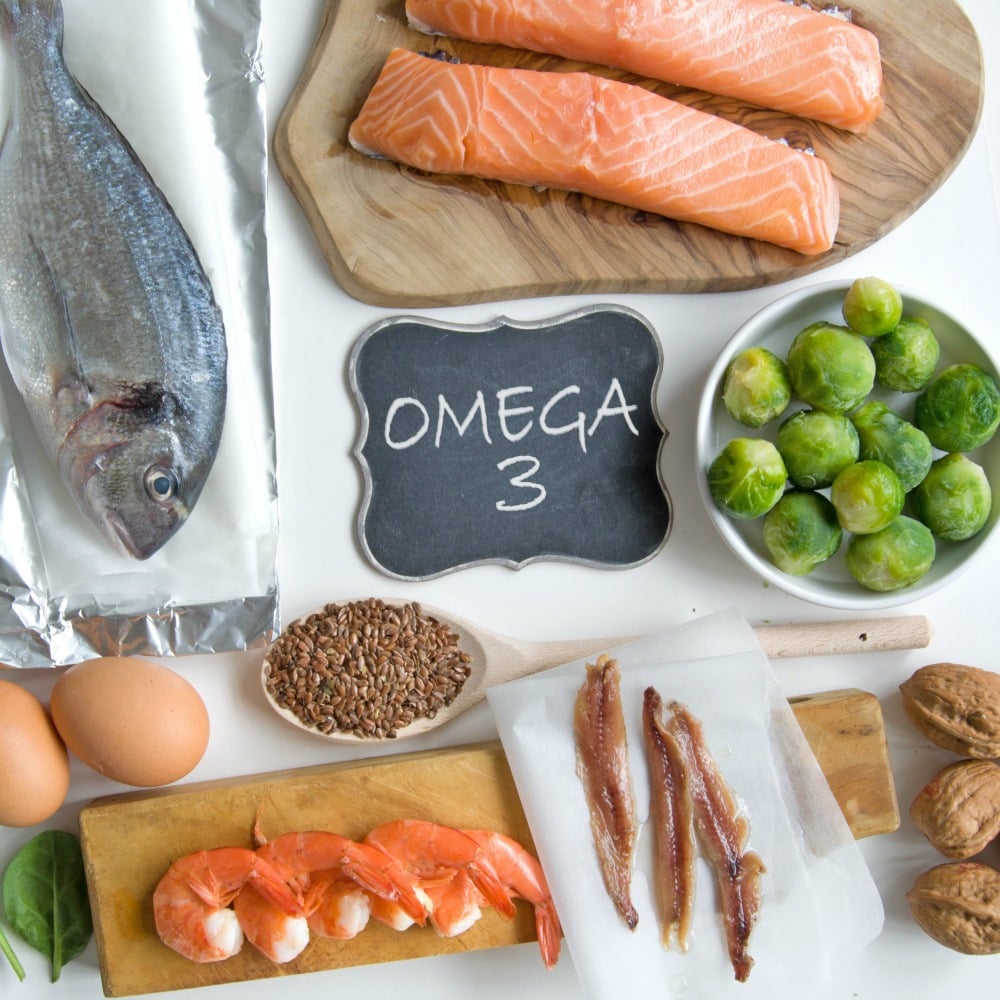While most well-known sources of omega-3s come from fatty fish sources such as salmon, tuna, and trout there are other sources that may be of interest to those trying to limit their animal product use/intake.
For vegans, you may be interested to know that of the 3 main types of omega-3 fatty acids plant foods will typically only contain ALA. Alpha-linolenic acid is not active within the body and must be converted into 2 other forms, EPS and DHA to afford the same health benefits, this is unfortunate as the body is limited in the conversion with around 5% of ALA being converted to eicosapentaenoic acid and less than 0.5% being converted into docosahexaenoic acid.
The limited ability to convert ALA means that if vegans don’t take a fish oil supplement or get enough EPA/DHA from their diet it is important to consume adequate quantities of ALA-rich foods to meet the body’s omega-3 requirements/needs.
Another important thing to keep in mind is the ratio of omega-3 to omega-6, as a diet that is high in the latter while being low in omega-3s can increase your levels of inflammation and thus increases your risks of disease.
Chia seeds may be small in size but these tiny balls are packed with fiber and protein, they afford many health benefits and they are also a great source of ALA omega-3 fatty acids, in fact just one ounce can meet and even exceed your daily recommended intake as it contains 4,915 mg. Chia seeds have been found to help decrease blood triglycerides, glucose intolerance, and inflammatory markers as well as increasing both good HDL cholesterol and omega-3 fatty acid levels in the blood.
You may want to consider another round-ish food item, this one is a cruciferous vegetable that is so rich in nutrients such as fiber, vitamin C, vitamin K, and omega-3 fatty acids that it has been linked to many health benefits. The veggie is none other than Brussels sprouts which contain around 44 mg of ALA in only a half-cup raw serving while cooked can provide 135 mg. One study found increased intake was associated with a 16% decreased risk of heart disease.
Hemp seeds also provide an impressive amount of omega-3s in addition to protein, iron, zinc, and magnesium with one ounce containing around 6,000 mg of ALA. These flexible seeds can go into cereal, smoothies, salads, yogurt, trail mix, hemp seed oil, and granola among other uses which may provide benefits to heart health by helping to prevent the formation of blood clots and help a heart to recover after a heart attack.
Sticking with the somewhat round theme, walnuts are also loaded with healthy fats which includes ALA omega-3 fatty acids, walnuts are actually comprised of around 65% of fat by weight. One single ounce serving contains 2,542 mg of omega-3 fatty acids which can help to improve brain health as they are associated with improvements in learning and memory.
This brings us to another tiny and round nutritional powerhouse containing fiber, protein, manganese, and magnesium in each serving to go along with being a rich source of omega-3 fatty acids. Flaxseeds have been shown to have benefits for the heart which includes helping to reduce cholesterol and significantly lower blood pressure. Just one ounce of this flexibly used seed contains 6,388 mg of ALA omega-3 fatty acids.
The thing to remember is that omega-3 fatty acids are an important part of your daily diet and they are essential to health. If you choose to abstain from animal products, which includes fish, you can still find ways to include omega-3s in your diet to reap the many benefits. These items mentioned above are just a few examples of plant-based sources other than a dietary supplement to consider in order to help meet your body’s needs/requirements.




